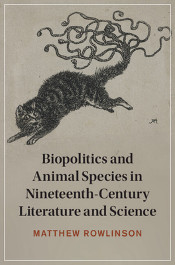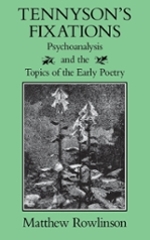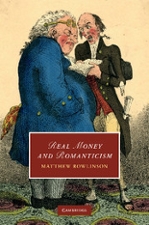 Matthew Rowlinson
Matthew Rowlinson
Biopolitics and Animal Species in Nineteenth-Century Literature and Science
Principles of species taxonomy were contested ground throughout the nineteenth century, including those governing the classification of humans. Matthew Rowlinson shows that taxonomy was a literary and cultural project as much as a scientific one. His investigation explores animal species in Romantic writers including Gilbert White and Keats, taxonomies in Victorian lyrics and the nonsense botanies and alphabets of Edward Lear, and species, race, and other forms of aggregated life in Darwin's writing, showing how the latter views these as shaped by unconscious agency. Engaging with theoretical debates at the intersection of animal studies and psychoanalysis, and covering a wide range of science writing, poetry, and prose fiction, this study shows the political and psychic stakes of questions about species identity and management. 2024, Cambridge University Press.
Real Money and Romanticism
Real Money and Romanticism interprets poetry and fiction by Sir Walter Scott, John Keats, and Charles Dickens in the context of changes in the British monetary system and in the broader economy during the early nineteenth century. In this period modern systems of paper money and intellectual property became established; Matthew Rowlinson describes the consequent changes in relations between writers and publishers and shows how a new conception of material artifacts as the bearers of abstract value shaped Romantic conceptions of character, material culture, and labor. A fresh and radically different contribution to the growing field of inquiry into the ‘economics' of literature, this is an ingenious and challenging reading of Romantic discourse from the point of view of monetary theory and history. 2013, Cambridge.
 Tennyson's Fixations: Psychoanalysis and the Topics of the Early Poetry
Tennyson's Fixations: Psychoanalysis and the Topics of the Early Poetry
Rowlinson has given us the most penetrating analysis of Tennyson's poetry to date. He proposes a revitalized and properly analytic formalism as the appropriate model for reading of Tennyson. In a series of original, scrupulously attentive, and sophisticated close readings, he probes the nature of place and the structuring of desire in Tennyson's work. Focusing on the poet's most important early writings- fragments and poems produced from 1824 to 1833- Rowlinson conflates deconstructive theory with psychoanalytic insights. 1994, University of Virginia Press.




